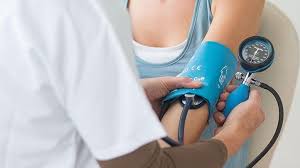Source:forbesindia.com
While cholesterol helps your body function, too much of it can cause severe health issues including high blood pressure also known as hypertension. The excessive cholesterol can build up and eventually form plaque in the body’s arteries. These blockages in the arteries make it more difficult for oxygen-rich blood to pass through, causing a strain on your heart and increasing your blood pressure. It is recommended that all adults aged 20 and above have their cholesterol checked every four to six years. Leading a well-balanced, healthy lifestyle is the key to healthy levels of cholesterol and blood pressure. To lower your cholesterol, eat a healthy diet and get 40 minutes of moderate to vigorous-intensity aerobic exercise, three to four times a week. However, following lifestyle modifications, a failure to achieve a healthy cholesterol level, warrants the use of medicines. Medications can help you to control cholesterol levels, but diet and lifestyle changes remain the best ways to reduce the risk of high blood pressure. It’s also very important to take your medication exactly as your doctor has instructed.
High blood pressure, what doctors call hypertension, affects one in three adults. High blood pressure can lead to heart attacks, strokes, and other adverse cardiovascular events. Traditionally treatment has been medication, diet, exercise, and no smoking or alcohol. However, recent studies suggest that there’s a lot you can do to keep your blood pressure within a healthy range, including starting a yoga practice. Yoga, including pranayama, asanas and meditation, when performed mindfully, can reduce stress-induced hypertension, while addressing its underlying causes. It pacifies the nervous system and slows down the heart, while training the muscles and mind to relax deeply. Studies suggest that Yoga may help reduce blood pressure in people who are at risk for developing hypertension. However, people with high blood pressure are warned to be cautious in approaching exercise. This is generally because vigorous exercise puts stress on the cardiovascular system, including raising heart-rate and blood pressure. Before engaging in any sort of exercise program, including yoga of any type or variety, people with any sort of cardiovascular condition including high blood pressure should consult their physician. Also, it is important to remember that yoga may be a complementary therapy. It is not a replacement for treatments and medications that a healthcare professional recommends.
